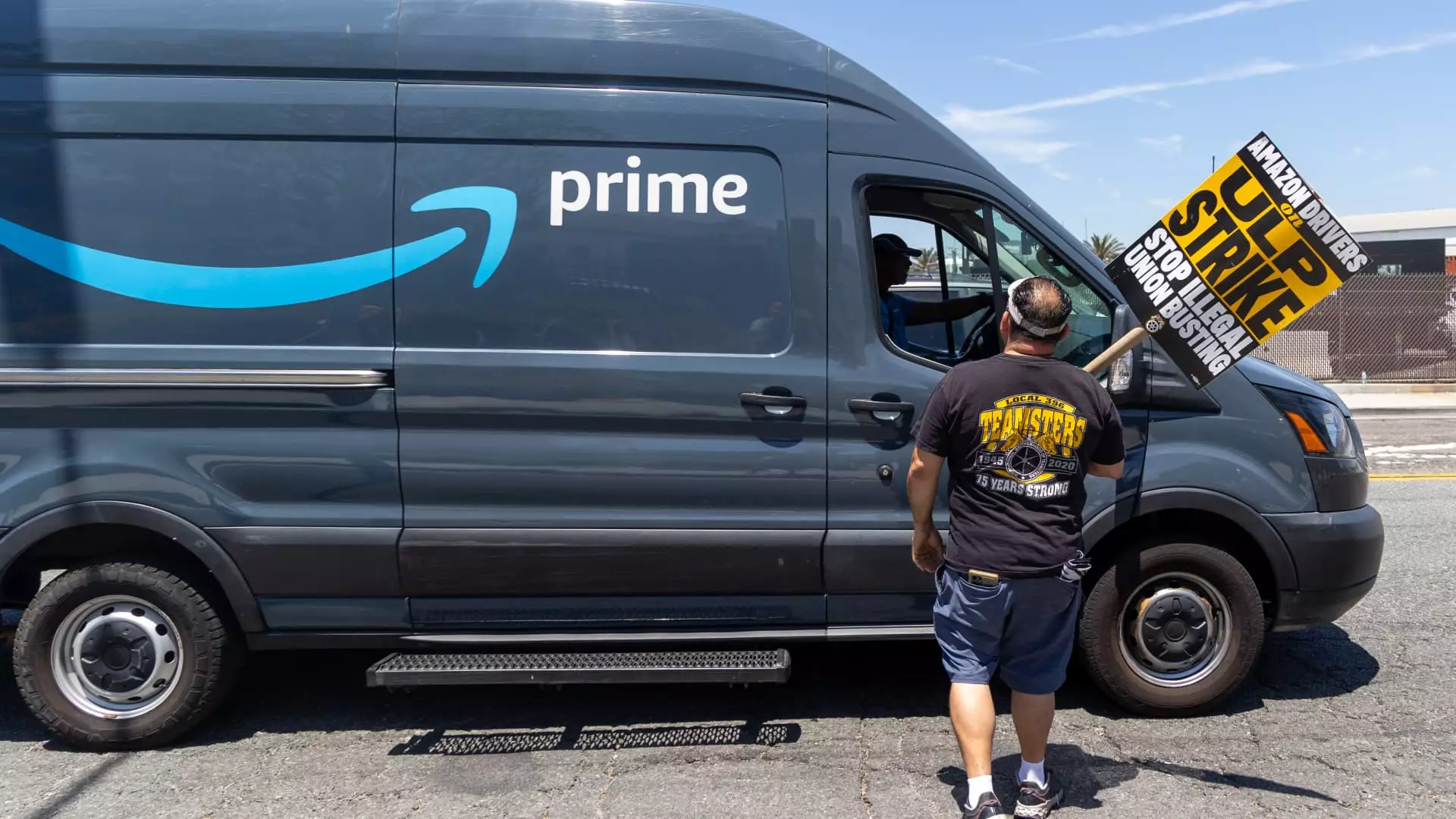In a recent announcement, a regional director for the National Labor Relations Board (NLRB) stated that Amazon should be considered a “joint employer” of some of its contracted delivery drivers. This decision came as a result of reviewing two unfair labor practice charges filed in January regarding how Amazon treats its drivers at an Atlanta warehouse known as DAT6. While Amazon has traditionally relied on third-party drivers to handle its increasing volume of deliveries, the NLRB’s regional director discovered that Amazon jointly employed drivers at the site who were working for a contractor named MJB Logistics.
This determination by the NLRB could potentially force Amazon to engage in bargaining with employees who are seeking to unionize. The NLRB’s ruling is part of a larger debate surrounding the employment status of drivers who work for companies contracted by Amazon. Lawmakers and labor groups, such as the Teamsters union, have argued that Amazon exerts significant control over these drivers, including setting their schedules and performance expectations, despite the drivers technically being employed by third-party contractors.
Recent Organizing Efforts by the Teamsters
The Teamsters union has been actively working to organize Amazon delivery and warehouse workers over the past year. In response to Amazon’s alleged mistreatment of workers, the Teamsters launched an Amazon division in 2021 to provide support and funding for employees engaged in organizing activities. Additionally, the union has coordinated strikes at various Amazon delivery facilities and successfully recruited a labor group at an Amazon warehouse in New York to affiliate with the Teamsters.
The NLRB’s determinations in both Atlanta and Palmdale have put Amazon in a difficult position. The allegations of threatening drivers with site closures, making coercive statements, and creating an atmosphere of surveillance at the facilities could have serious legal consequences for the company. If the parties involved do not reach a settlement, a hearing will be scheduled with an NLRB judge, and either party retains the right to appeal the judge’s decision to the NLRB board and potentially to federal court.
The NLRB’s decision regarding Amazon’s treatment of contracted delivery drivers underscores the ongoing battle over worker rights and unionization efforts in the gig economy. As the relationship between companies like Amazon and their contracted workers continues to be scrutinized, the outcome of these cases will have significant implications for how labor is organized and protected in the modern workforce.


Leave a Reply